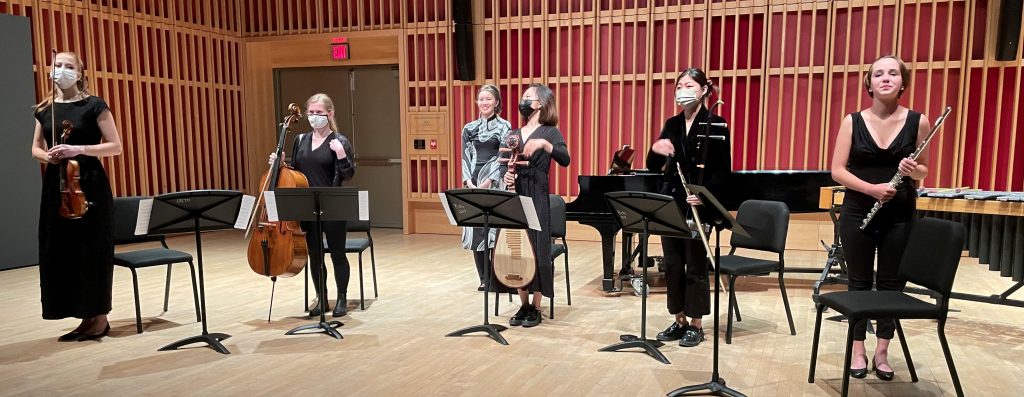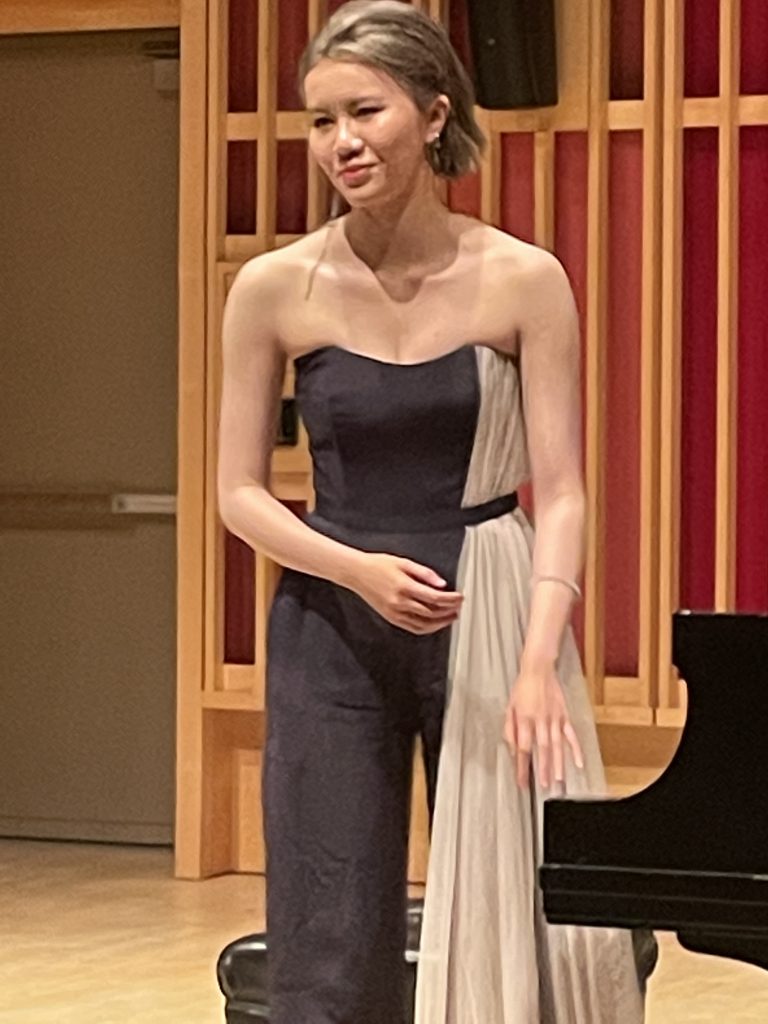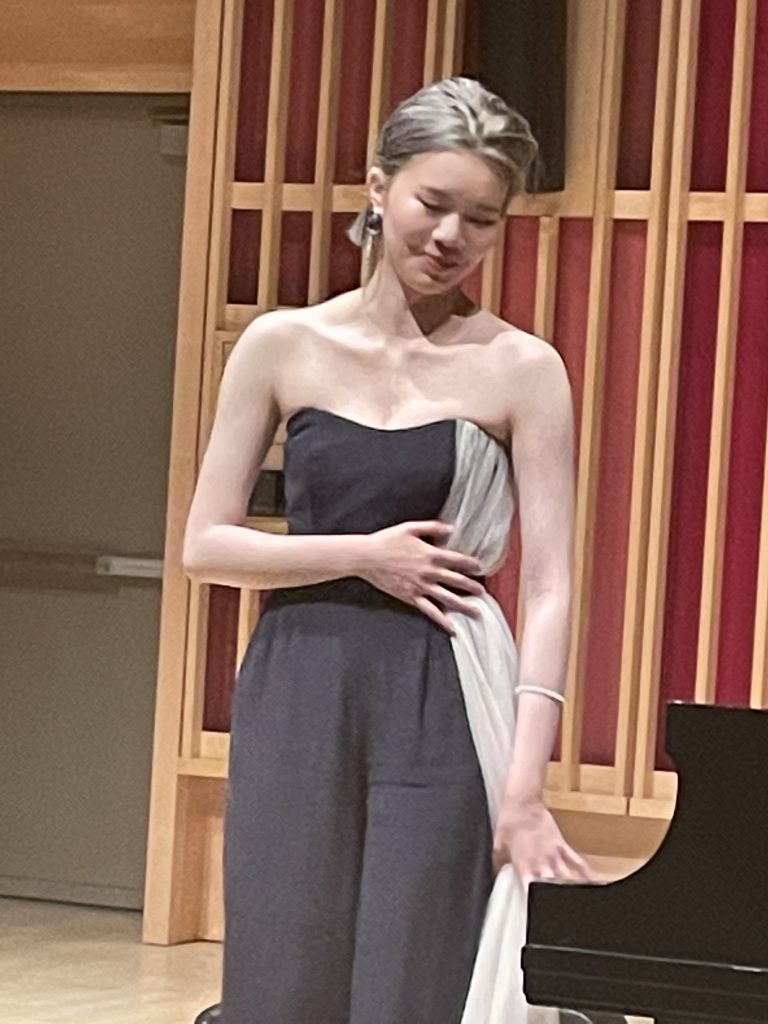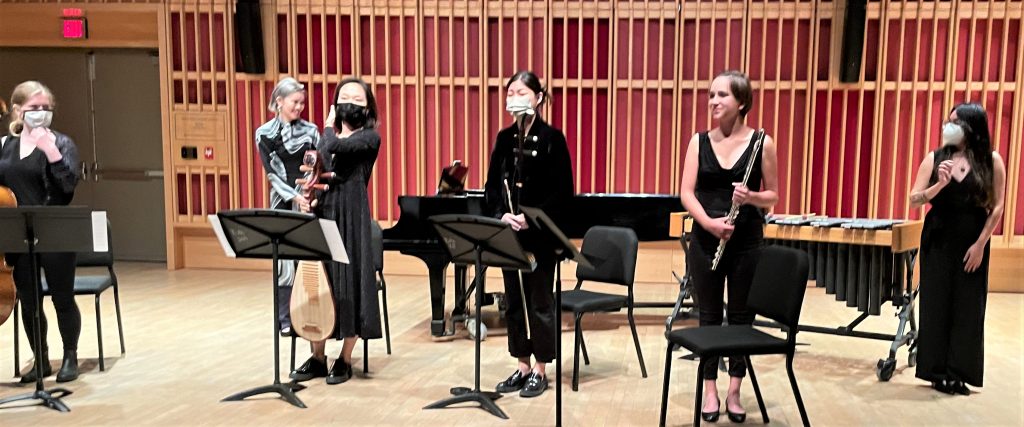
by Kevin T McEneaney
On the afternoon of May 20th at Láslo Z. Bitό Conservatory Building Keyan Ivy Wu delivered her post-graduate Degree Recital. She opened with Beethoven’s Piano Sonata No. 27 in E minor, Op. 90 (1814). Beethoven had written nothing at all for the piano in the preceding five years. His work in the Classical style focused on solving a problem and it addressed the public. Returning to the piano in 1814 marked his transition from Classical composer to Romantic composer. He now addressed personal problems: in this case addressing the romance of love. The first movement dramatizes a debate: “Contest between Head and Heart” wherein the head argues for the Classical style and the heart a more emotional style; Beethoven is still stuck with trying to solve a problem and the conclusion appears to declare that the Romantic solution offers a more attractive approach. The admission that the Classical approach solves nothing in personal life remains so abstract and theoretical that the argument is not convincing because it is argument, not feelings. I think that was what Wu alluded to when she declared that she preferred the second movement to the first and I heartily agree with that perspective. The second movement, “Conversation with the Beloved,” offers real satisfaction with emotional warmth that reveals some of the personality of Beethoven, which is why, I think, Wu observed that this movement is her favorite Beethoven piece, which she played with deep, revealing feeling.

Robert Schumann’s Carnaval, for piano, Op 9., originally entitled Allegro (1835), was dedicated to Mademoiselle Ernestine de Fricken, to whom he was attracted, and aspired to marry. The work offers an anthology: twenty-two short movements presenting a satiric panorama of society party-goers and their musical taste, such as Chopin and Paganini. This Romantic renunciation of the superficiality of conventional high society concludes with an attack on the Philistines in A flat major. The difficulty of playing this work is hard to underestimate. Wu was dazzling with her digital dexterity! The density of this piece in predominantly Classical style remains difficult to digest in less than several hearings. Wu played with fluid, mocking abandon. After Robert became enamored of the much younger Clara, he renounced the work, saying “There is little in it except good intentions,” an amusing sarcasm to deflect his attack on the upper class. With her unusually long fingers, Wu delivered the artistic attack on the bland ignorance of the upper class with the necessary caustic edge.
Wu performed three sections of Images, Book One (1905) by Claude Debussy, an early excursion into the Orient whereby he brought Oriental sounds and modalities into the West by being influenced by Chinese, Japanese, and Indonesian melodies. This was written originally for two pianos and this one-piano compression plunged one into the floating world of watery illusion, a perennial theme in Chinese poetry. The piano did not levitate, yet one could image that it did amid rapid harmonic progressions.

The climatic conclusion demanded a septet: Rea Abel on flute, JinOu Dong on pipa, Beitong Lie on ehru,Grace Molinaro on cello, Shaunessy Renker on violin, Jaclyn Quilizapa on percussion. They played Season of the Spring Rain by Australian Ray Lin (b.2000). Wu, also a composer, collaborated with Lin on creating this work which I found stunning: it appeared to summon the sounds of Spring into the concert room. The instrumentation of the work combines five Western instruments. Here both the ehru and violin were especially outstanding while the piano supplied the emotional undercurrent. This unusual and stunning work in the tradition of both Debussy and traditional Chinese poetry was played magnificently with piano accompaniment. Here was the best of both hemispheres in such accomplished performance that should have been recorded. In the future this work will be a modernist, international classic.
